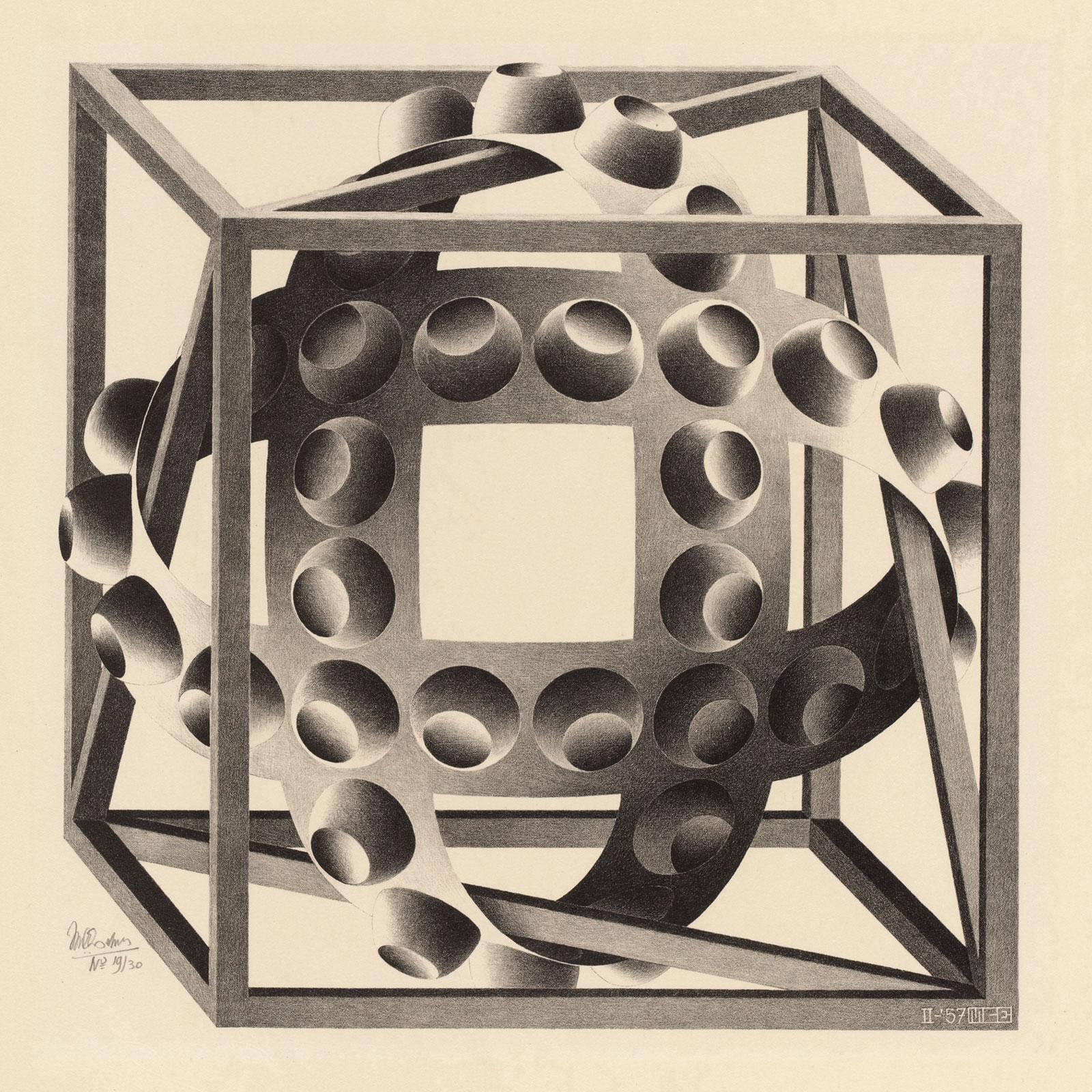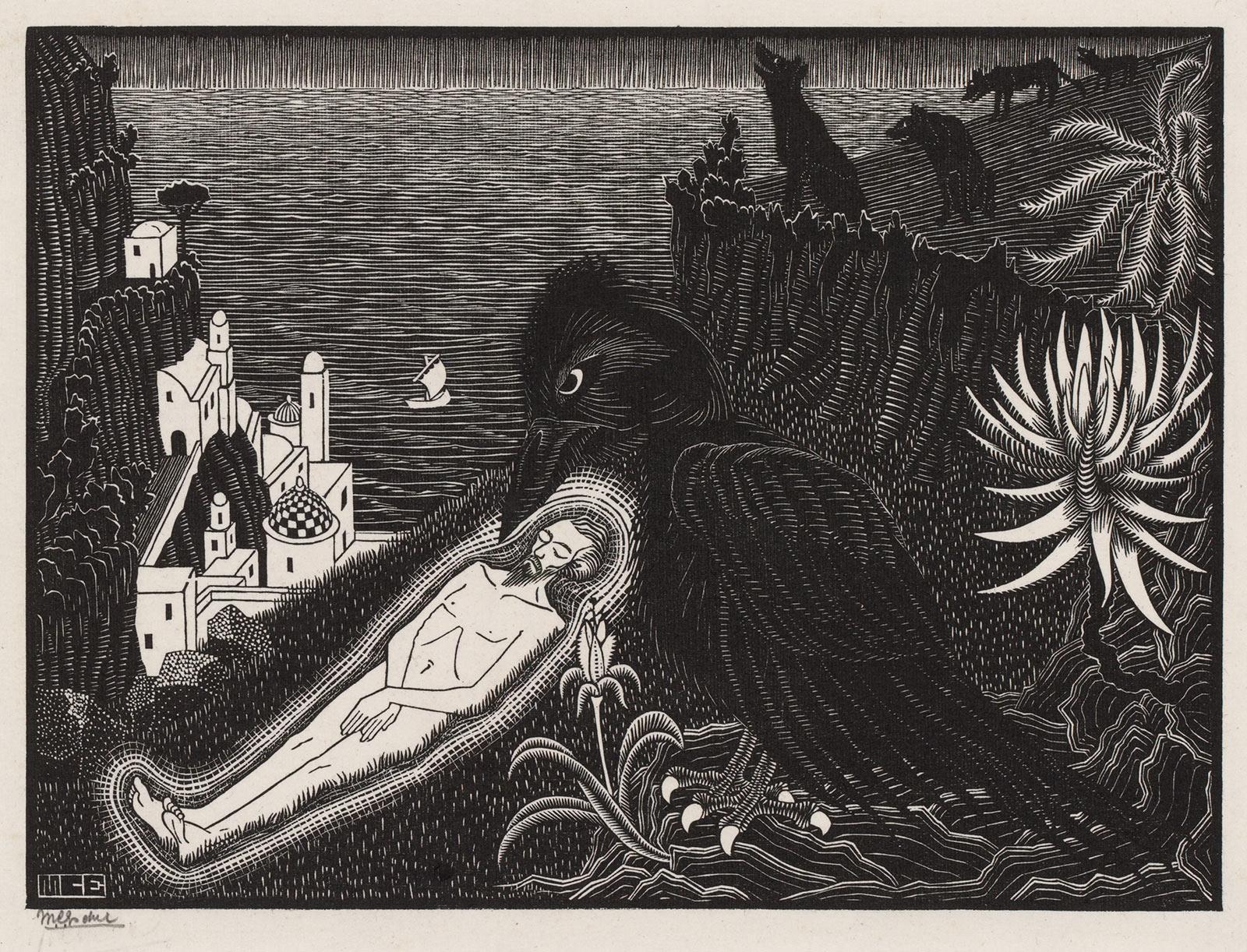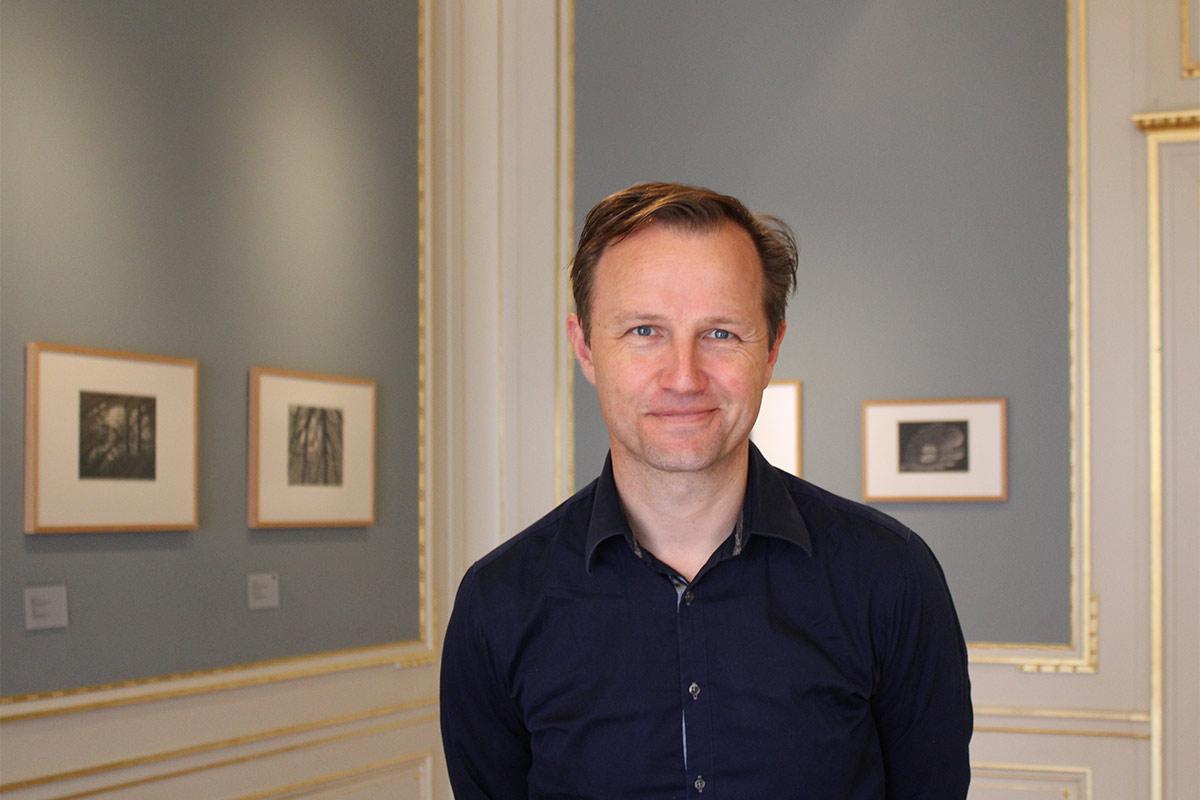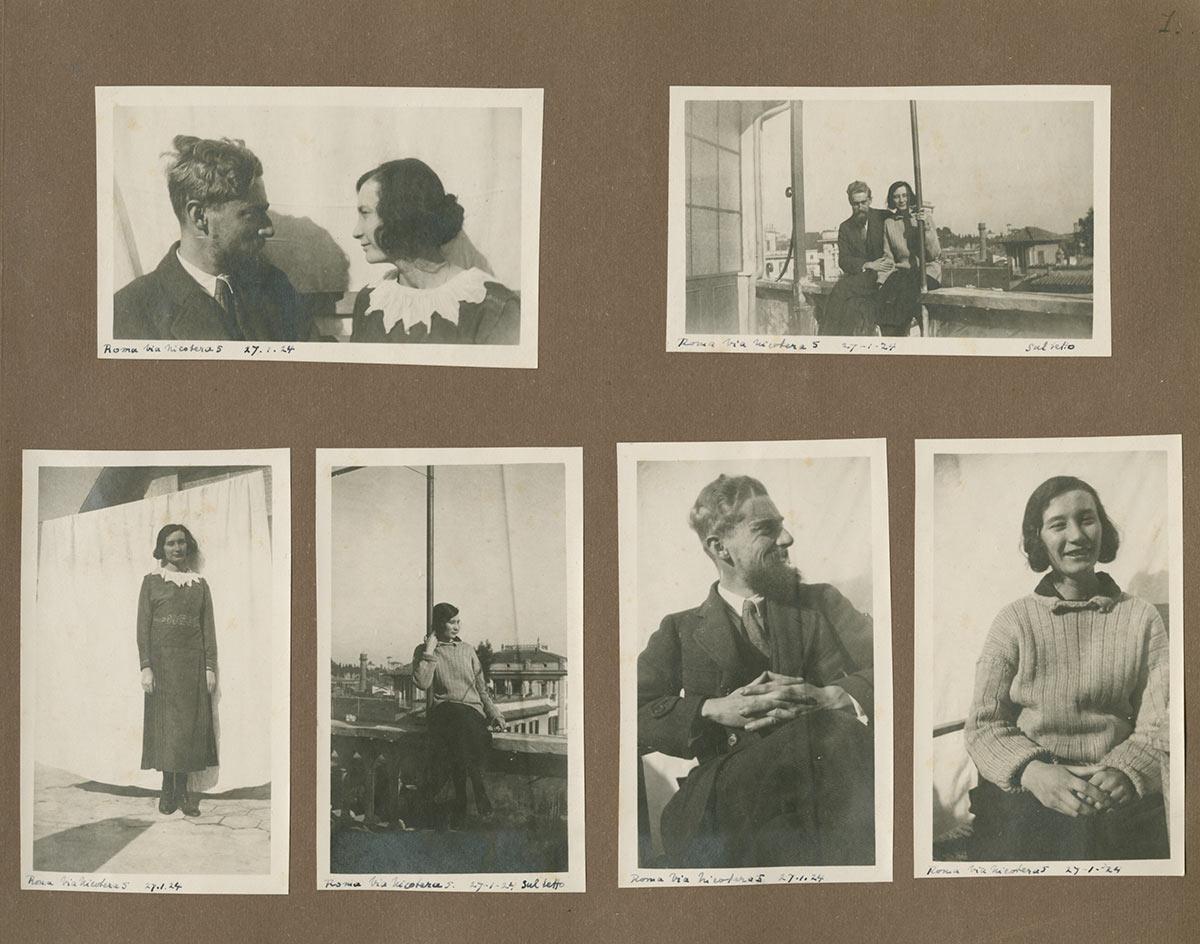

In a letter to his son Arthur from 27 February 1955 Escher writes about Light in August, a 1932 novel by William Faulkner, which Escher had read in translation*:
'... for — Christ! — that gentleman’s English is so damned difficult. Thanks to the good English lessons you had at secondary school you may well understand the original. I have not read a modern novel that had such an effect on me for many years, probably not since The Plague by Camus. It is partly that the psychological treatment of the murderer, comparable to Dostoevsky’s Raskolnikov, though completely different, is unusually gripping. He is one of those rare writers with whom one dare not find fault as a layman and who towers over most of their contemporaries.'

Light in August tells the story of the embittered Joe Christmas, a man whose racial identity is unclear. He believes himself to be black despite appearing white. Readers do not know either and this unknowing forms the central irony of the book. Christmas has spent his entire life trying to reconcile himself with this fact and find a place in which he is accepted for who he is as a person, and not for his race. Thematically the book deals with religion, identity, prejudice, sexuality, oppression and racial tensions in the American South during the 1930s.
Escher’s biographer Wim Hazeu compiled a list of books Escher read during the course of his life. Not an exhaustive list, it would be fair to assume, but a varied one featuring some big names ranging from Faulkner, Borges, Camus, Caroll, Conrad, Couperus, Dante, Dostoyevsky, Elsschot and Gogol to Melville, Moravia, Slauerhoff, Tolkien, Tolstoy, Chekhov, Wells and Zweig**.
Source
[*] and [**] Wim Hazeu, M.C. Escher, Een biografie, Meulenhoff, 1998, page 359 and 544-547
More Escher today



